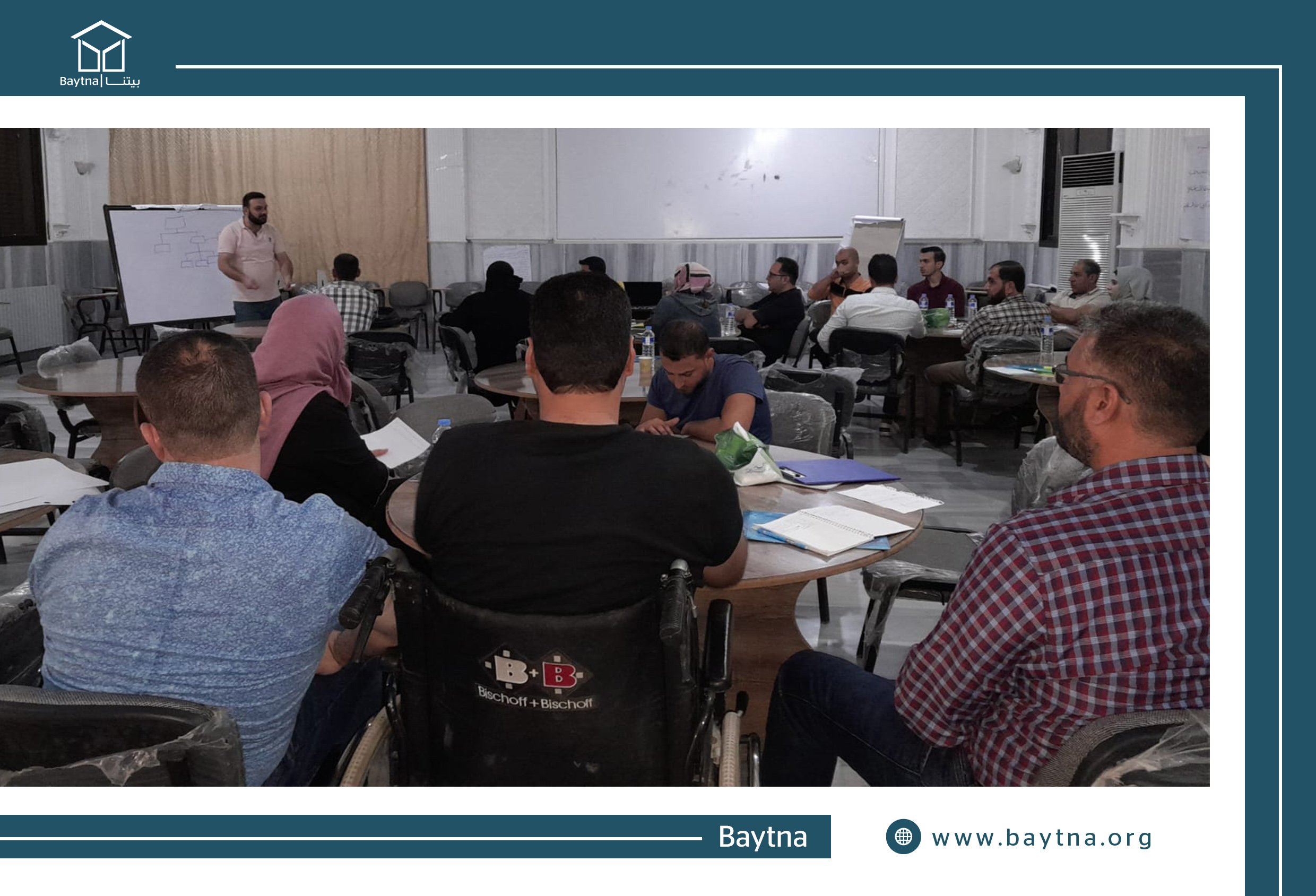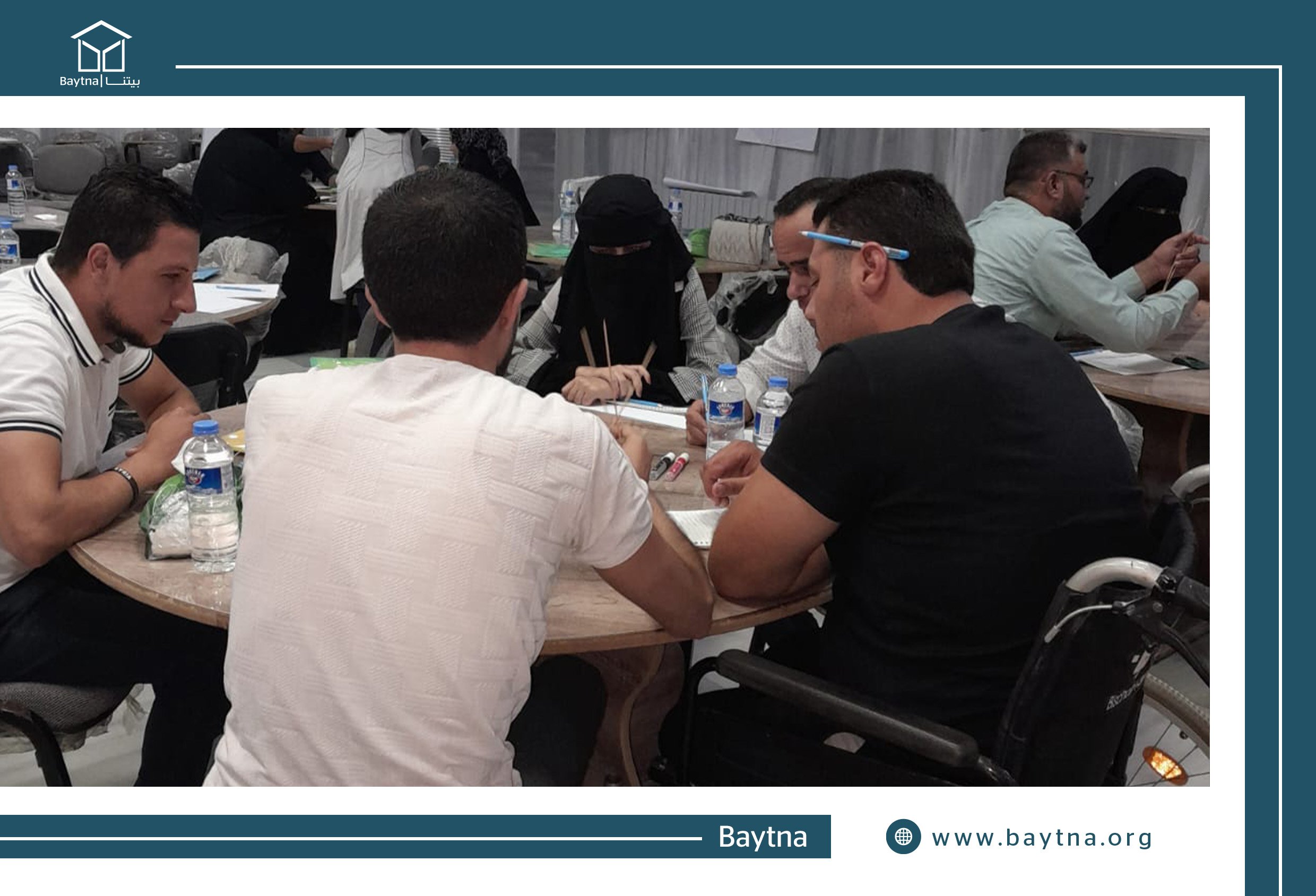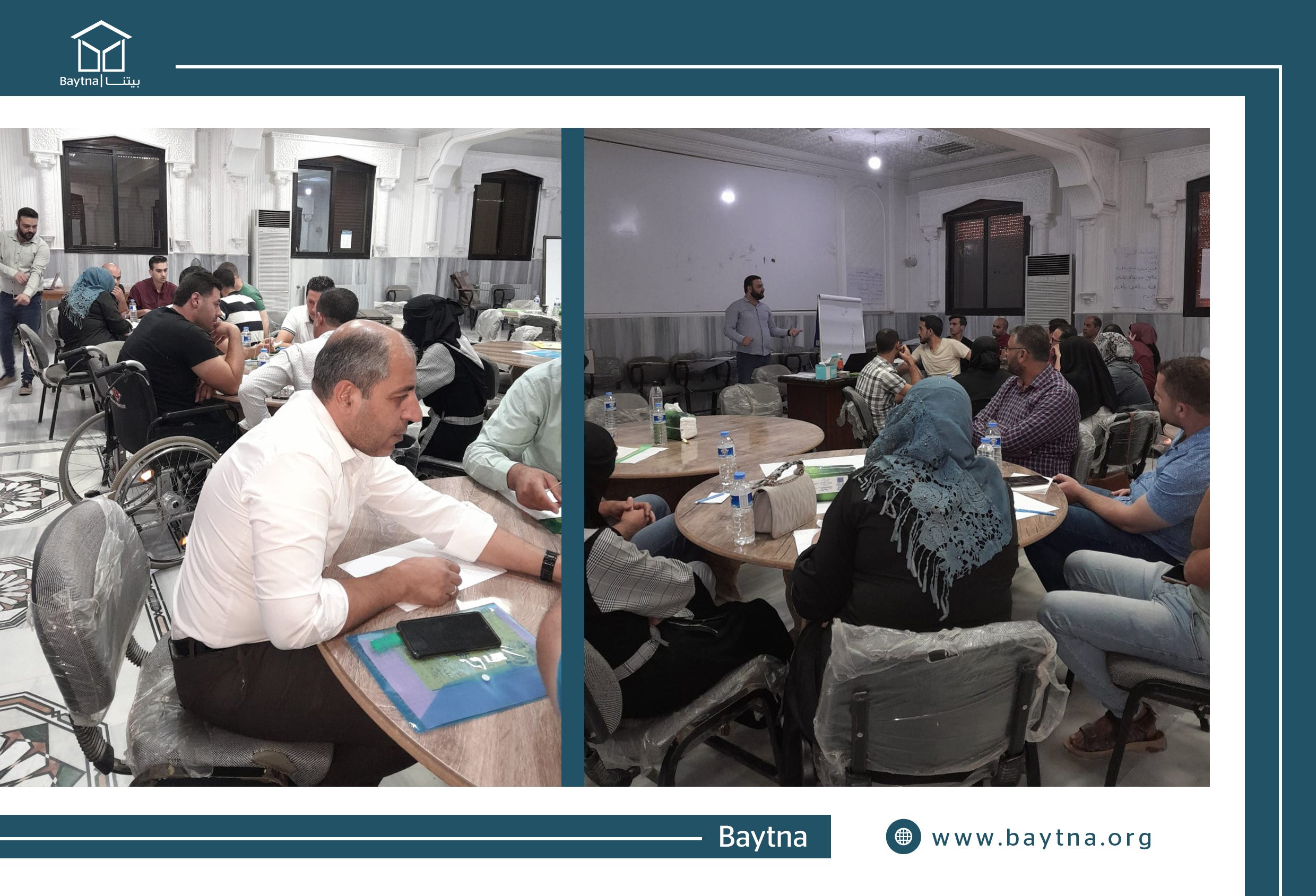A Strategic Planning Dive for Baytna Partners in Syria



November 28, 2022 - Why do we develop strategic plans, and what is their benefit? How do we formulate strategy, and how do we build our teams around these objectives? These are some of the questions budding organizations still ask themselves as they seek to improve their organizational capacities and increase productivity. At Baytna, we had some solutions to propose.
Baytna trainer Hussam Al-Hajji has given a course on this strategic planning challenge for twenty young male and female managers in Syria, part of the teams of several of our field partners such as Midad, Change Makers, the Civil Center in Atarib, Sanabel Al-Amal, Al-Wafaa Team, and the Al-Hikma Al-Alaliya House.
Al-Hajji launched the course with a questionnaire to better understand the current operational situation of the participants’ organizations. "I felt a little embarrassed to say that our organization doesn't even have a real strategic plan in place, and felt this was such a necessary step for us to take; the trainer not only taught us how to do it, but also helped us plan and start developing a special strategy for each organization," said one of the participants.
Among the many stimulating and engaging activities, using props like balloons and wooden sticks, the participants learned how to build a tower of work values, topped with an inflated balloon representing each group's strategic plan according to the steps they learned. "The goal of the activity was to build the team's spirit and to understand the importance of investing in human and material resources. It was an excellent activity," said Al Hajji.
Activities like these are also designed to show where some plans have weaknesses, and how to learn from mistakes. "I was sad to see our strategic plan (the balloon) flying in the air and fading away. Luckily, we could use plenty of balloons to devise a new strategy. It was a great way to learn about formulating and using mitigation plans," said a young manager in the Midad team.
"How can we work SMART – and what do these letters stand for?" then asked Al-Hajji to push forward on the strategic planning issue. While some of the participants were familiar with this management concept and the acronym for Specific, Measurable, Attainable, Relevant, and Time-bound, some of the others were enthusiastic to discover it and work on applying it. Participants were separated into groups to conduct a situational analysis (SWOT, to determine Strengths, Weaknesses, Opportunities and Threats), defining objectives, learning about procedures and means, designing the schedule, sorting out agendas, and setting a budget.
These exercises and practical activities allowed participants to write an initial strategic plan serving their respective organizational purposes, with the help of our experienced trainer." It was great to see them create the basis for their own strategic plans. We have aimed to consider the differences in the structures, messages, and goals each organization holds and works through. In the end, it was a productive workshop with a lot of fun and hard work," concluded Al-Hajji.


